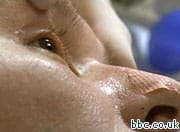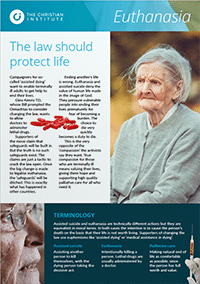The girlfriend of a comatose man who narrowly averted having his life support cut off by moving his eyes has spoken of her hope for the future.
Richard Rudd was left completely paralysed and unable to communicate with those around him after a serious motorcycling accident.
But earlier this week a BBC documentary revealed how Mr Rudd escaped death when an intensive care specialist discovered that his patient was able to communicate through eye movements.
Intensify
Mr Rudd’s brush with death is likely to intensify the debate over living wills.
And his girlfriend of two years, who had previously lost hope of him making a recovery, has spoken of her hope for the future.
Kate Wilson said: “If this is how far he’s come in eight months, I just want to see what the next eight months bring”.
“He’s a fighter and he wants to live, so I am praying for a miracle. I just want my boyfriend back and I still can’t believe how close I came to losing him.”
Change
Mr Rudd’s story was captured on camera for Between Life and Death, a BBC documentary.
Mr Rudd had previously expressed a desire to die should he ever be paralysed, but critics have warned that people often change their minds when they experience such a situation.
Dr Rachel Pickering, from the Care Not Killing Alliance, said: “This case outlines the danger of living wills. Patients often discuss with friends and family about how they think they’ll feel if they ever face a certain situation.
“But that doesn’t mean that is how they definitely will feel once they end up in that situation.”
Trapped
And Nigel Smith, who has himself spent three months in a coma, mirrored Dr Pickering’s concerns.
Writing in the Daily Mail Mr Smith, whose condition was caused by a brain lesion, said: “Most healthy young people could probably never imagine wanting to live if they were completely paralysed.
“Yet, when such a rare eventuality occurs, I think we might be surprised at how few actually want to give up on their lives, no matter how difficult they become.”
Freezing
And describing his experience Mr Smith said: “I remained in a ‘locked-in’ state for the next three months, with doctors all the time trying to find the cause of my lesion. But I just had to lie there, fed through tubes, and unable to react or speak in any way.
“I remember one day the air-conditioning unit was left on at full pelt, leaving me absolutely freezing, but there was no way I could tell anyone, so I just had to shiver.
“But slowly I began to get better, recovering some movement in my right hand and then, through much rehabilitation, regaining some of the power in my legs.
Thrilled
“It has been a long journey, and I am still severely disabled – I have to be fed through a tube, move about with difficulty and can type only with two fingers – but I am thrilled that I am still here, enjoying life to the full.”
He added: “I am deeply sceptical about going down the road of an enshrined ‘right to die’, with legalised assisted suicide, because this could badly undermine the rights of patients in a locked-in state.”
You just don’t know what will happen
In his book Against Physician Assisted Suicide, Dr David Jeffrey tells the story of a former army instructor who was being treated for terminal cancer and was determined to commit suicide.
After a discussion with the doctor, it emerged that he was missing the Army, and was subsequently taken to watch a passing-out parade of young recruits, where a party had been arranged in his honour.
“His life was transformed,” Dr Jeffrey said. “He had a purpose and his demeanour completely changed. He died two weeks later, comfortably. People’s lives always have that potential. Even in the midst of suffering there can be change.
“You just don’t know what will happen.”
A different life
The Times reported the story of Matt Hampson, a former rugby player who was paralysed from the neck down during training and now requires a ventilator to breathe.
With the help of carers and a custom-built house, he has been able to set up a website, is writing an autobiography and is the patron of a charity for disabled children called Special Effects.
He says: “I don’t live a bad life, I live a different life. I use my brain more than my brawn now. It has helped me become a more rounded person. I think about things more.
“I’ve had to grow up quite a bit and do things that most 23-year-olds don’t do.”
I’m grateful I wasn’t allowed to end it all!
Alison Davis is National Co-ordinator of No Less Human. She was born with severe spina bifida, and is dependent on a wheelchair. She is often in extreme pain for hours at a time. She says that for many years she wanted to “end it all”.
“If euthanasia had been legal, I would certainly have requested it and I wouldn’t be here now,” she says.
But after several serious suicide attempts, blocked by the intervention of Alison’s friends, she began to change her mind.
Alison met the disabled children she had been sponsoring through a charity. The experience led her to think, for the first time in over ten years, “I think I want to live”.
She says: “I’ll always be grateful to the friends who saved my life (though I wasn’t at the time). And I’m especially thankful there was no possibility of persuading my doctors to legally help me die.”
She believes that disabled people “deserve the same kind of help routinely given to those who do not have a physical condition but who feel suicidal”.


